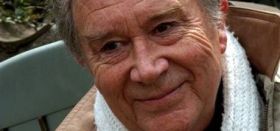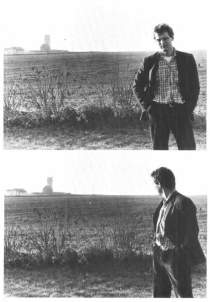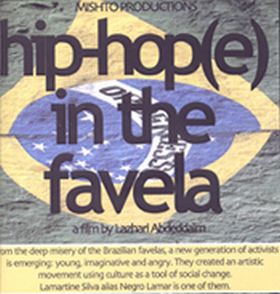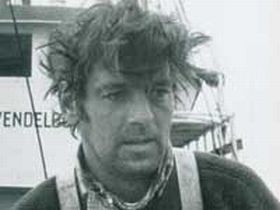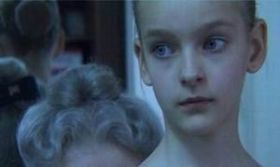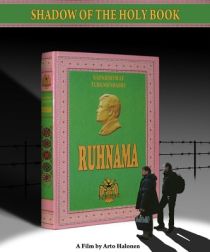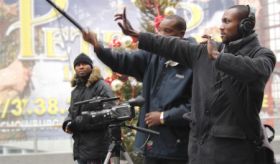


Wim Wenders: Der Himmel über Berlin
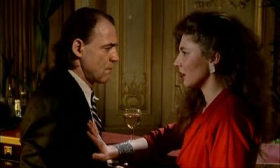
Afsnit 17 (femtesidste scene) “Fremtidens fortællinger”: Omsider møder de hinanden i en sammestedsamtid. De er begge nede på jorden nu, disse flyvende væsner. Hun fra trapezluftnummeret. Han fra engletilværelsen. De står ved baren. Men banalt kan de ikke mødes, selv om de kysser hinanden. Han er lidt for hurtig, og som det ses, lægger hun en blid hånd på hans arm. Men jo, de gør det jo – lidt senere. Men der ER fortiden (som også er byens) og der ER friheden, som de begge netop har vundet. Begge erfaringer er i vejen. Hun holder en lang klog, ærlig og forførende tale, på mere end fem minutter, tror jeg
Afsnit 3 hedder “Engel i biblioteket”, og scenen har stået i min erindring siden dengang, filmen var ny. Og nu ser jeg, den næsten er en (omvendt?) filmatisering af Rilkestedet, som i mellemtiden er kommet ind i mit liv: “Jeg sidder og læser en digter. Der er mange mennesker i salen,men man mærker dem ikke. de er i bøgerne. undertiden bevæger de sig i bladene som mennesker, der sover og vender sig imellem to drømme. Aah, hvor er det dog godt at være iblandt læsende mennesker. Hvorfor er det ikke altid saadan? Du kan gå hen til en og røre sagte ved ham: han mærker ingenting…” Bruno Ganz bevæger sig i scenen, som ikke kan glemmes, usynlig for alle, bortset fra de følsomme, og han rører ved enkelte. Og vi hører et hav af dæmpede stemmer, alle teksterne i læsesalen har i et slags pinseunder fået stemmer. Og det er os, det vedrører, vi, som ser filmen, der hører det.
Efter otte år i det fremmede USA ville Wenders tilbage til det tyske sprog og opmuntret af Rilkes tekster og af digterens englefigur lavede han så dette filmdigt om den endnu delte by, som han i Im Lauf der Zeit mere end ti år tidligere havde optaget en road-movie langs det delte lands indre grænse.
DVD versionen kom for et par år siden. Jeg købte den – siden har den stået uset hos mig, men så pludselig i aftes: Jeg vil se noget stort! Og det er det..
Wim Wenders: Der Himmel über Berlin, 1987. 122 min. Manuskript (monolog og digt): Peter Handke, kamera: Henri Alekan, klip: Peter Przygodda, medvirkende: Bruno Ganz, Solveig Dommartin, Otto Sander, Curt Bois og Peter Falk. DVD, Arthaus 2005, 500941, Wim Wnders Edition,
